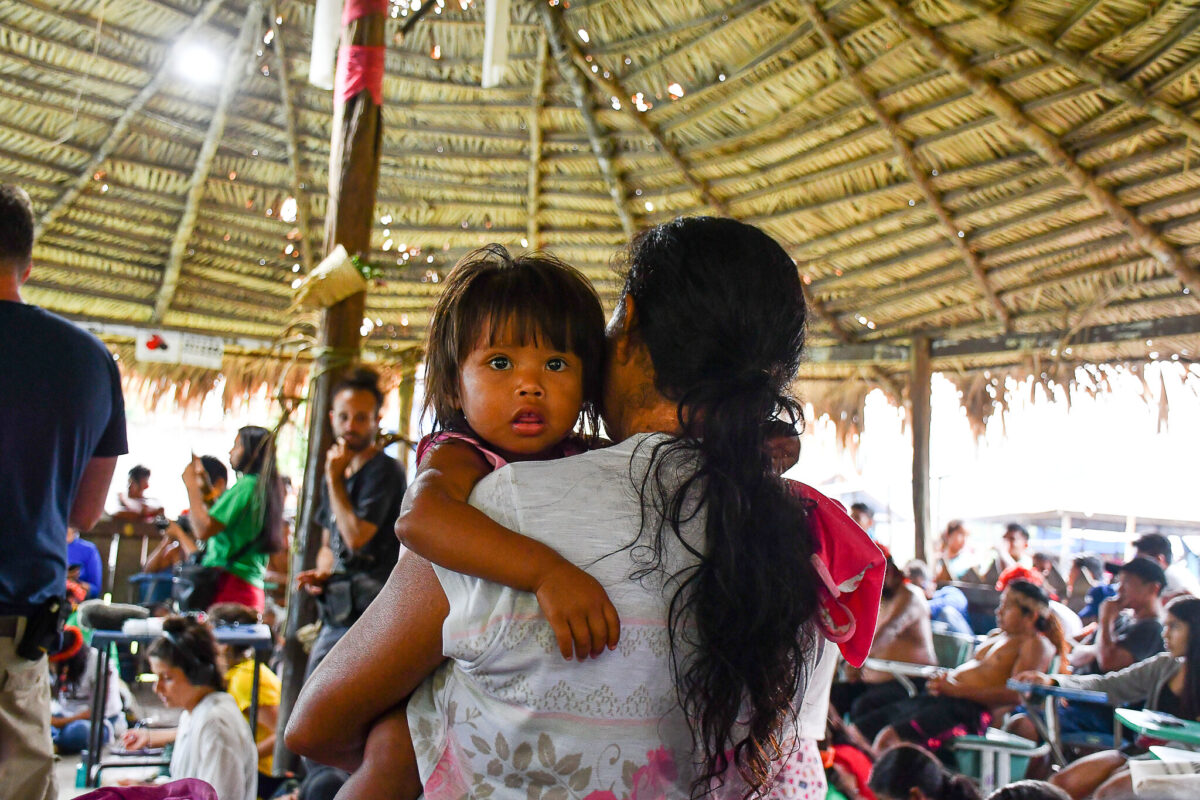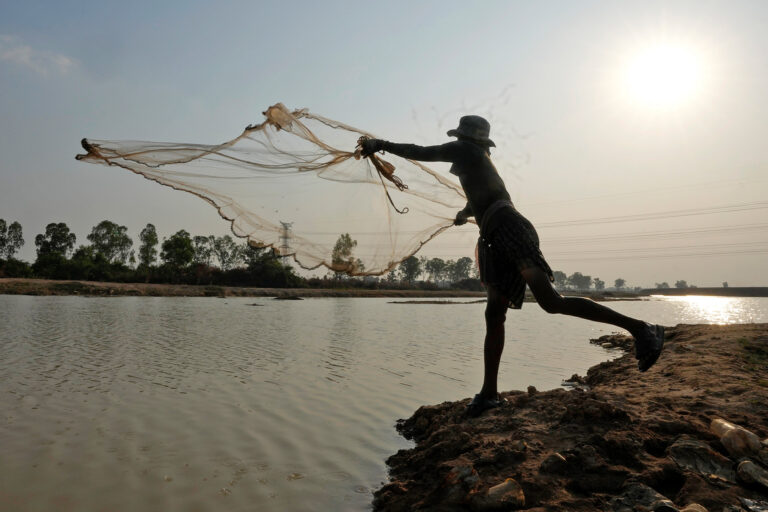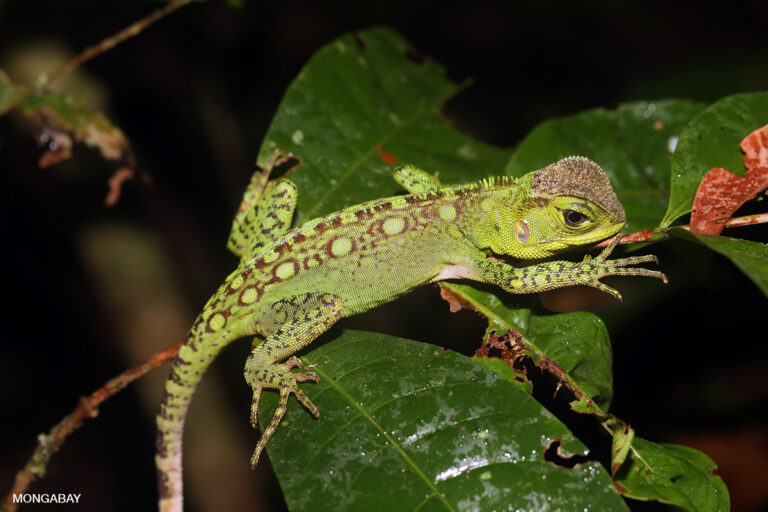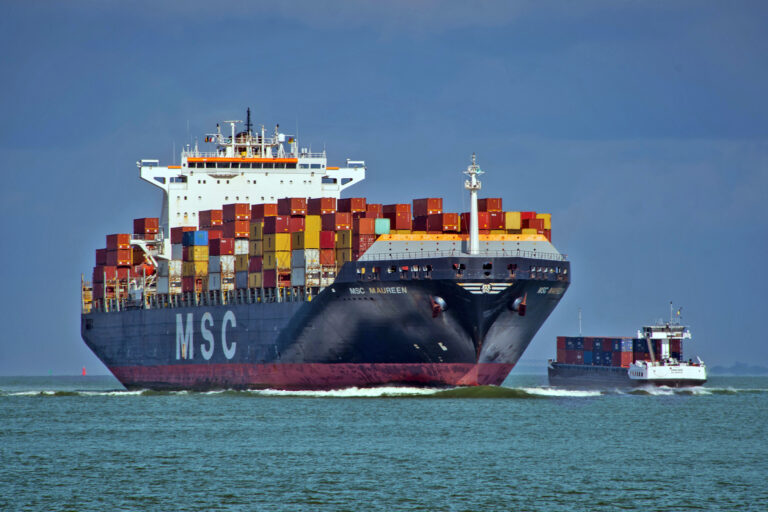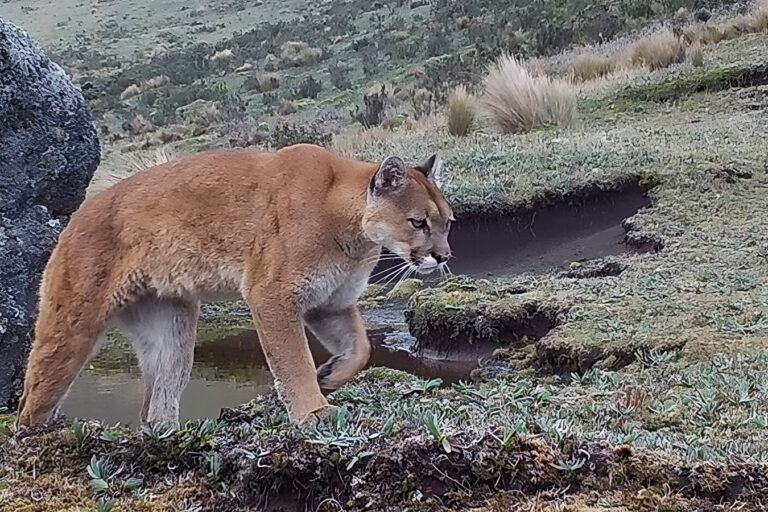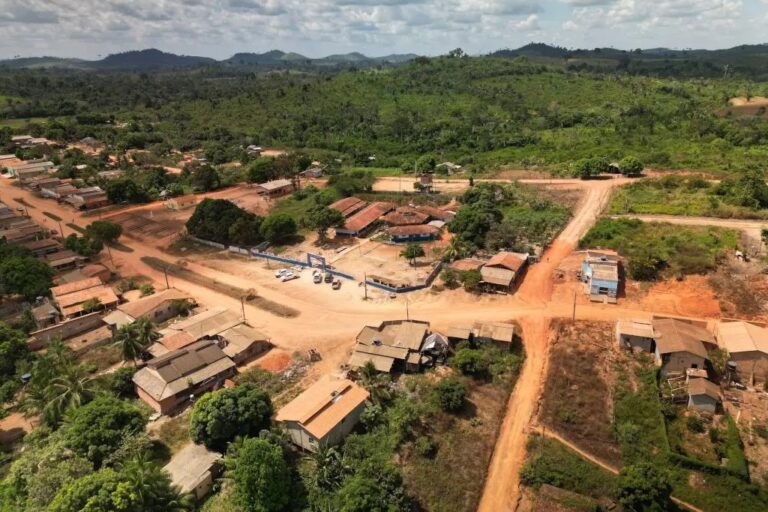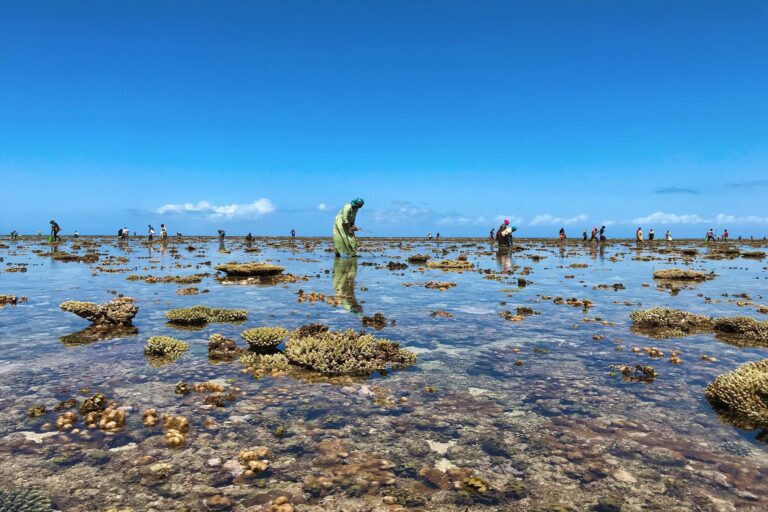- Illegally obtained timber from West Africa wound up in sidings and other wood products sold in hardware stores across the U.S., a report alleges.
- Federal officials have launched an investigation into the U.S. importers of the wood, Evergreen Hardwoods and Cornerstone Forest Products.
- The trade focused on timber from the okoumé tree, classified as vulnerable by the IUCN and which only grows in four countries in Africa.
An illegal timber trade supply chain stretching from Chinese companies operating out of two countries in West Africa to major hardware stores located throughout the U.S. has been uncovered. A four-year investigation by the Washington, D.C.-based Environmental Investigation Agency (EIA) uncovered claims of evidence of illegal behavior by the Chinese-owned Dejia Group (DG). They include concessions obtained through bribery, over-harvesting of trees, and tax evasion.
One exchange related in the report between EIA undercover investigators and a DG representative explains how suitcases filled with about $172,000 was handed to a minister for the Republic of Congo’s government on more than one occasion.
Records obtained by the EIA also suggest that, in Gabon, DG affiliate SICOFOR overharvested an estimated 15,000 trees between 2013 and 2016, of which more than one-third were species listed as either vulnerable or endangered by the IUCN.
The trade highlighted by the EIA is based around a timber called okoumé (Aucoumea klaineana), derived from a hardwood tree that grows only in Gabon, the Republic of Congo (ROC), Equatorial Guinea and a very small area of Cameroon. It is used as a veneer, the hard outer layer of plywood, and for panels or sidings used in home construction and renovation.
In its report into what it terms a “toxic trade,” the EIA identifies companies affiliated to DG as the primary players in the illegal activity.
It also names Evergreen Hardwoods and Cornerstone Forest Products, which imported okoumé into the U.S., and Roseburg, which processed the plywood, as being complicit in the illegality by allegedly failing to properly research the origin of the wood as they are required to under the U.S. Lacey Act. The wood siding products ended up in retailers such Home Depot and Menard’s, and were marketed as being environmentally friendly.
“The buyer [for both Evergreen and Cornerstone], Jim Green, positioned himself as the key interface between the U.S. and Africa,” EIA director of forest campaigns Lisa Handy told Mongabay. “All the okoumé was funneled through him, and he knew very well — that’s what he told us — from whom he was buying and what their practices were, and how he too played a role in the corruption as an accessory.”
Mongabay contacted Evergreen Hardwoods multiple times but did not receive a response. Menard’s also did not provide any response to the EIA investigation when requested. Green told Oregon Public Broadcasting in an email, “I have not been to Africa in 15 years and have never visited Republic of Congo.”
U.S. Immigration and Customs Enforcement (ICE) is now conducting an investigation into the allegations contained in the EIA’s report. Roseburg told Mongabay in a statement that it was a “cooperating witness” in the investigation, that it had had no knowledge of any illegal activity by the importing companies, and that it had carried out due diligence on the legality of the timber.

“Roseburg did take proactive steps to confirm that the okoumé supply chain complied with the Lacey Act,” corporate communications director Rebecca Taylor said in a statement. “[We] engaged third-party experts DoubleHelix Tracking Technologies to evaluate the importers’ compliance and to perform on-site, in-person audits of their supply chains.”
But Handy said they had not been sufficiently thorough in their checks.
“Roseburg knew they were high-risk countries — Congo is perceived as the 15th most corrupt country on Earth — and they told us, ‘Well, that’s the reason why we keep Evergreen between [us and the suppliers in Africa], because if anything happens, that’s going to be on them,’” Handy said.
Since the allegations surfaced, Roseburg has suspended the sale and manufacturing of its Breckenridge siding as well as its relationship with both Evergreen and Cornerstone.
In addition to the investigation in the U.S., which Handy said she was hopeful would result in prosecutions, the EIA is also waiting to see what happens in Gabon and the ROC as a result of its revelations.
“We feel something may happen in Gabon,” Handy said. “Last year, Gabon had a major crackdown on illegal logging, and it resulted in 13 companies paying fines of some $14 million. This had never been done in the Congo Basin before. An NGO we collaborate with over there has brought the report to the attention of the Ministry of Forestry, so perhaps the same level of action may happen again.”
The ROC does not have the same record of addressing illegal logging as Gabon, but given that it has a Voluntary Partnership Agreement with the EU to address it, Handy said she was hopeful that some pressure could be applied on the government to clean up the industry. The EIA has also handed its report to major donors to West Africa, including the World Bank, USAID and the U.K.’s Department for International Development.
Simon Counsell, director of the Rainforest Foundation, told Mongabay that the EIA report reflected how much of the process of obtaining and operating logging concessions across the Congo Basin was “opaque and corrupt.”
“It points to the need for much stronger anti-illegality measures within, for example, the EU Timber Regulation and Lacey Act, such that they take into account the logging concession allocation process, not just the trade from it once it’s already operating,” Counsell said.
Banner image: The Republic of the Congo’s forests are part of the vast Congo Basin rainforest – second only to the Amazon in size. Photo by Rhett A. Butler.
About the reporter: James Fair is a wildlife conservation and environmental journalist based in England. You can find him on Twitter at @Jamesfairwild.
FEEDBACK: Use this form to send a message to the editor of this article. If you want to post a public comment, you can do that at the bottom of the page.




